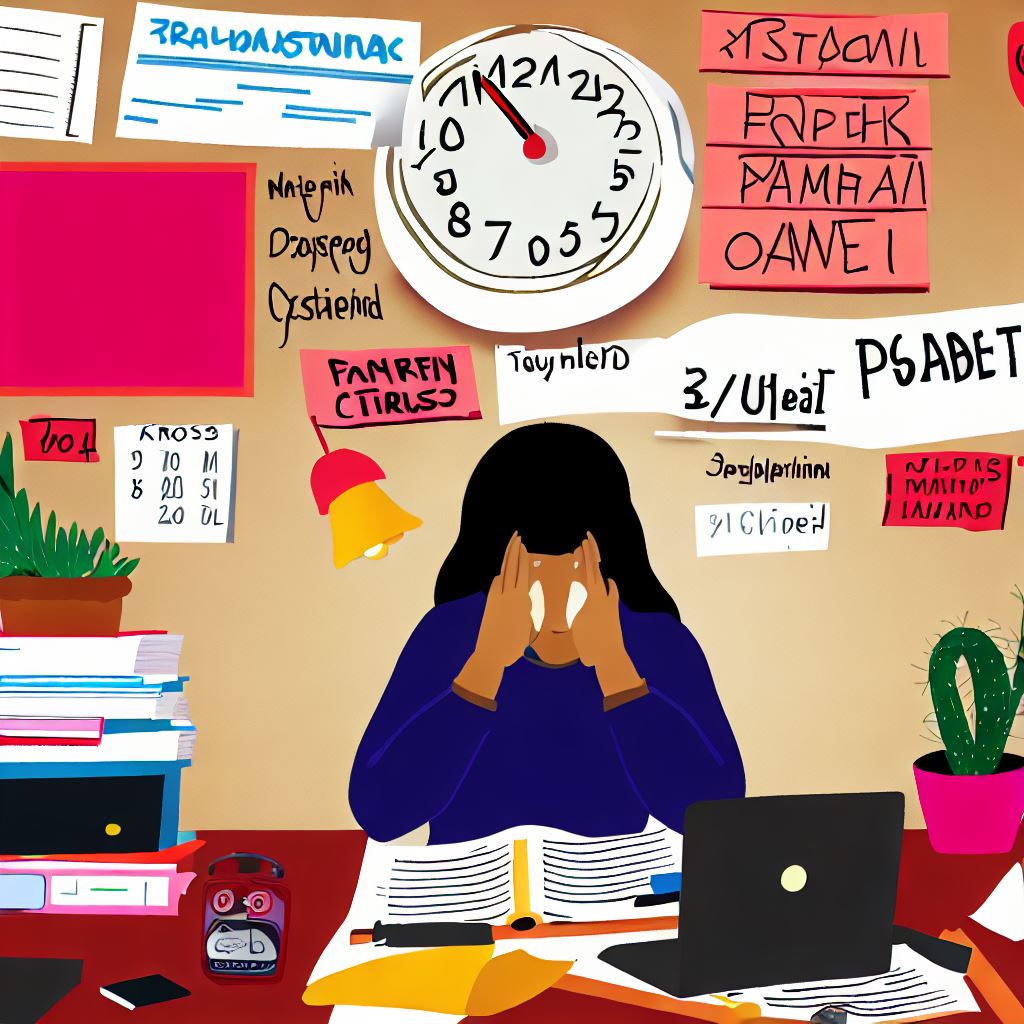
Student's Guide to Beat Procrastination Effectively
Understanding Procrastination: What is it?
Procrastination, at its core, isn't just about laziness or dilly-dallying. It's a complex psychological behavior characterized by the act of delaying or postponing tasks that one intends to complete. This behavior often leads to "time-wasting" and can deeply affect one's ability to manage their responsibilities effectively.
"Procrastination is like a credit card: it's a lot of fun until you get the bill." – Christopher Parker
The Psychology Behind Procrastination
Procrastination isn't just about poor time management or laziness. It's deeply rooted in our psyche. Cognitive-behavioral theories suggest that people procrastinate due to:
- Fear of failure.
- Perfectionism.
- Lack of motivation.
- Decisional procrastination: Delaying tasks due to indecision.
Procrastination among Students: The Stats
- An estimated 70-95% of university students procrastinate.
- Approximately 50% of high school students report chronic procrastination.
- Procrastination can lead to reduced academic performance, increased stress, and lower overall well-being.
The Fallout: Effects of Procrastination on Student Grades and Mental Health
Procrastination can have several negative consequences for students, including:
- Lower grades and academic performance.
- Increased stress and anxiety.
- Feelings of guilt and low self-esteem.
- Chronic procrastination can even lead to mental health issues like depression.
Techniques to Beat Student Procrastination
Evidence-Based Strategies to Overcome Procrastination
- Break tasks into smaller steps: This makes daunting tasks seem more manageable.
- Use the "Two-minute rule": If it takes less than two minutes, do it now.
- Commit publicly: Sharing your goals can create accountability.
- Reframe the task: Instead of seeing it as a burden, see it as an opportunity.
- Practice self-compassion: Understand that no one is perfect. Celebrate small wins and learn from setbacks.
Cognitive-Behavioral Approaches
Engaging in cognitive restructuring can change the way students perceive tasks. For instance:
- Challenge negative beliefs and replace them with positive affirmations.
- Visualize the benefits of completing tasks on time.
Strategies for Students to Improve Time Management
- Prioritize tasks based on importance and deadlines.
- Set specific and realistic goals.
- Eliminate distractions. Create a dedicated study environment.
- Allocate specific times for breaks to avoid burnout.
- Use time management tools and apps to stay on track.
Real-life Success Stories
Case Study: Maya's Turnaround
Maya, a college sophomore, always found herself cramming the night before exams. Realizing the impact of her procrastination on her grades, she sought help from a counselor. With the application of cognitive-behavioral techniques and improved study habits, Maya was able to raise her GPA from a 2.3 to a 3.8 in just two semesters. Her secret? Breaking tasks into sub-tasks, scheduling breaks, and continuously reminding herself of the bigger picture.
Tools & Apps for Effective Time Management
- Trello: Organize tasks with boards, lists, and cards.
- Todoist: Prioritize tasks and set deadlines.
- Pomodoro Timer: Break tasks into intervals with scheduled breaks.
- Focus@Will: Music designed to boost concentration.
The Role of Motivation
Motivation plays a pivotal role in overcoming procrastination. Understand your "why" – the reason you want to succeed. Setting clear, intrinsic goals can drive motivation and push one to overcome the urge to delay tasks.
Final Thoughts & Call to Action
Procrastination might seem like a formidable opponent, but with understanding, strategy, and a touch of motivation, students can reclaim their time and their academic achievements.
"Every day spent procrastinating is another day spent worrying about that thing. Do it now, and move on with your life!"
Now, equipped with these strategies, it's your move. Take the reins, embrace effective study habits, and carve your path to academic success.
Jamie's Journey: Overcoming the Lure of TomorrowOnce upon a time in a town called ProcrastiVille, there was a university student named Jamie. ProcrastiVille was a peculiar place; clocks seemed to tick slower, calendars had extra pages for endless tomorrows, and the town's motto was "Why do today what you can do... someday?" Jamie had dreams. Big dreams. But like most residents of ProcrastiVille, he was trapped in the cycle of "I'll do it tomorrow." His room told the story: a cluttered desk, assignments hidden under heaps of unrelated papers, a clock whose batteries had long since died, and a calendar marking deadlines that seemed to mockingly dance further away. The ever-looming feeling of "time-wasting" was Jamie's constant companion. However, one day, a transformation began. Jamie stumbled upon an old book at the library titled, "Student's Guide to Beat Procrastination Effectively." Skeptical yet intrigued, he began to read. Through the pages, he learned about the psychology behind procrastination. It wasn’t just laziness; it was fear. Fear of not being perfect, fear of judgment, fear of failure. He read staggering statistics: nearly 95% of students in ProcrastiVille suffered like he did, watching their dreams get buried beneath the weight of tomorrow. But the book didn't stop at just illustrating the problem. It provided solutions:
Inspired, Jamie decided to change. He began to implement these strategies. The room that once symbolized chaos transformed: assignments were organized, the clock ticked with purpose, and deadlines were met with determination. The road wasn't easy. There were days when the old lure of "tomorrow" called out. But then, Jamie would remember Maya, a student from the book, who turned her life around using these very techniques. If she could, so could he! With time, Jamie's grades began to climb. But more than that, he felt a sense of control, happiness, and reduced stress. Word about Jamie's transformation spread in ProcrastiVille. Other students sought his advice, eager to break free from their chains of delay. Jamie's story became legendary. He proved that with understanding, motivation, and the right tools, one could beat procrastination and seize the day. And just maybe, thanks to Jamie, the town of ProcrastiVille might one day need a new name. |





